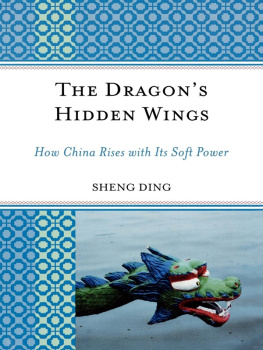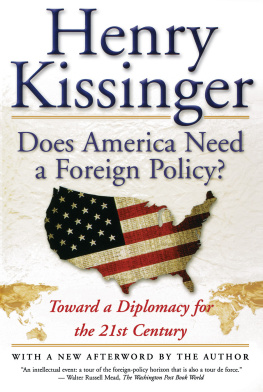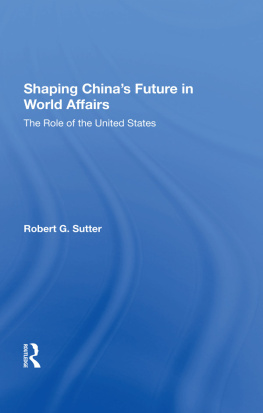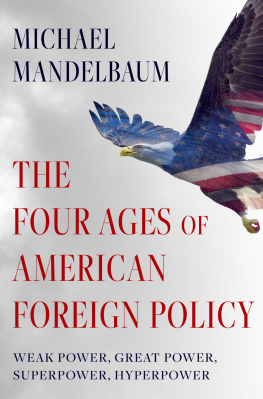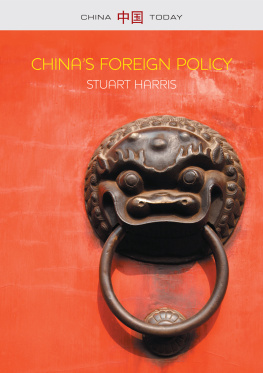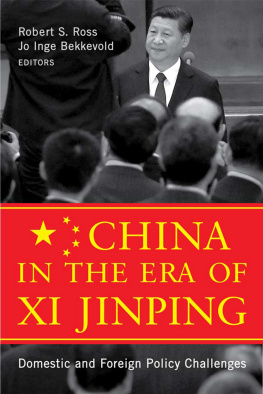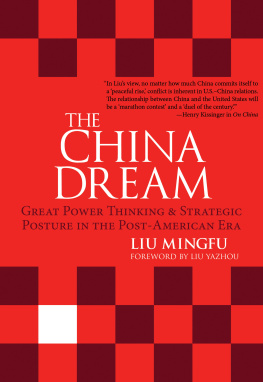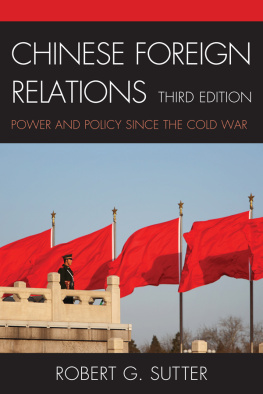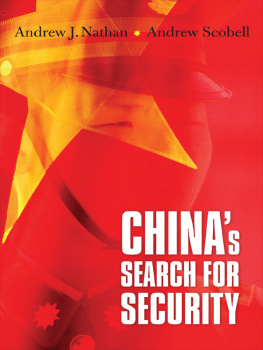Contents
Guide
Pages
The future of American power is the great question of our century. No one is better equipped than Joe Nye to answer it.
Lt. Gen. Brent Scowcroft, USAF (ret.) former Presidential National Security Advisor
This calm, reflective, and thoughtful antidote to alarm about American decline displays Nyes astonishing capacity to engage with the full range of challenges to American leadership.
Michael Ignatieff, Harvard Kennedy School
In this timely, compact book, Joe Nye makes a powerful case for the continuation of American primacy through diplomacy and cooperation. This strategy would not be overstretch or retrenchment but instead the application of American exceptionalism to shrewd power.
Robert B. Zoellick, former President of the World Bank Group, US Trade Representative, and US Deputy Secretary of State
The irreversibility of American decline is no longer a given. Joe Nyes compelling analysis shows that the future of the international order, and the respective roles of the US and China within it, will be shaped by a range of core domestic and foreign policy choices, rather than by some overwhelming, determinist, historical force that has somehow already decided the natural dimensions, depth, and duration of American power. The history of nations, as Joe Nye rightly asserts, is a more dynamic process than that.
Kevin Rudd, former Prime Minister of Australia
Joe Nye is always worth reading objective without being aloof, insightful without lecturing. Our disordered world needs answers to the challenges posed here.
David Miliband, UK Foreign Secretary 200710
Nyes masterful analysis shows the defenders of Americas continued primacy how to make their most credible case while forcing the declinists to engage with its arguments, and even rethink their assumptions.
Amitav Acharya, American University, and author ofThe End of American World Order
In this tour de force, Joe Nye proves that smart books about big ideas are best served in small packages: and if you are looking for one volume to read on a topic about which so much nonsense has been written since the disaster that was the Bush administration, this is the one to go for. Balanced, accessible, informed but above all, wise Nye demonstrates once more why he continues to influence the way we all think about the world.
Michael Cox, LSE IDEAS
Joe Nyes clear-eyed analysis makes a very compelling case that the American century is far from over, even though, with a less preponderant America and a more complex world, its next chapter will look different. Its not the sexiest argument. But utterly convincing.
Wolfgang Ischinger, Chairman of the Munich Security Conference and former German Ambassador to the US
With his usual clarity and insight, Joe Nye gives us a fascinating analysis of the complexities of power, exploring hard and soft power, state and non-state actors, and how to retain leadership once domination is over. European readers have much to learn from the US experience and its lessons for the evolution of the EU.
Mario Monti, Prime Minister of Italy (201113) and President of Bocconi University
Global Futures Series
Mohammed Ayoob, Will the Middle East Implode?
Christopher Coker, Can War be Eliminated?
Howard Davies, Can Financial Markets be Controlled?
Jonathan Fenby, Will China Dominate the 21st Century?
Jan Zielonka, Is the EU Doomed?
Is the American Century Over?
Joseph S. Nye Jr.
polity
Copyright Joseph S. Nye Jr. 2015
The right of Joseph S. Nye Jr. to be identified as Author of this Work has been asserted in accordance with the UK Copyright, Designs and Patents Act 1988.
First published in 2015 by Polity Press Polity Press
65 Bridge Street
Cambridge CB2 1UR, UK
Polity Press
350 Main Street
Malden, MA 02148, USA All rights reserved. Except for the quotation of short passages for the purpose of criticism and review, no part of this publication may be reproduced, stored in a retrieval system, or transmitted, in any form or by any means, electronic, mechanical, photocopying, recording or otherwise, without the prior permission of the publisher.
ISBN-13: 978-0-7456-9009-4
A catalogue record for this book is available from the British Library.
Is the American Century Over?
Library of Congress Cataloging in Publication Control Number:
2014036840
The publisher has used its best endeavours to ensure that the URLs for external websites referred to in this book are correct and active at the time of going to press. However, the publisher has no responsibility for the websites and can make no guarantee that a site will remain live or that the content is or will remain appropriate.
Every effort has been made to trace all copyright holders, but if any have been inadvertently overlooked the publisher will be pleased to include any necessary credits in any subsequent reprint or edition.
For further information on Polity, visit our website: politybooks.com
Acknowledgments
I want to thank Louise Knight of Polity Press for suggesting this short book as a way to summarize more than two decades of my thinking on this subject and bring it up to date for a general audience.
Robert O. Keohane, Strobe Talbott, and Ali Wyne provided helpful comments on an early draft. Inesha Premaratne was a wonderful research assistant, and Jeanne Marasca has been a fine general assistant for many years. I am grateful to my colleagues at The Center for Public Leadership and the Belfer Center for Science and International Affairs at the Harvard Kennedy School of Government for their support and intellectual stimulation, which I hope is reflected in these pages. Above all, I thank Molly Harding Nye not only for reading and commenting on the manuscript, but for providing the life support that makes everything possible.
No author is an island. I have had the benefit of learning from many people as I have lived through the American century. To them all, I am grateful.
The Creation of the American Century
Is the American century over? Many seem to think so. In recent years, polls showed that in 15 of 22 countries surveyed, most respondents said that China either will replace or has already replaced the United States as the worlds leading power. A Pew poll in 2014 found only 28 percent of Americans thought their country stands above all others compared to 38 percent in 2011. Yet perhaps, as Mark Twain famously quipped, reports of my death have been greatly exaggerated.
After American independence in the eighteenth century, the British politician Horace Walpole lamented that Britain had been reduced to the level of Sardinia. In fact, Britain was about to be transformed by the industrial revolution that created its second century as a global power. In the mid-1980s, an MIT economist asked why, if the British empire had lasted two centuries, are we slipping after about 50 years? With such cautionary examples, we need to keep humility in mind as we try to answer the question in our title.
When did the century start?
First, we need to be clear about what we mean by the American century. When did it start? One possible date would be the end of the nineteenth century when the United States became the worlds largest industrial power. As the twentieth century began, the United States accounted for nearly a quarter of the worlds economy and this was still true on the eve of World War II. Because that war devastated all the major economies at the same time that it strengthened the American economy, the United States represented nearly half the world economy in the immediate postwar period.


